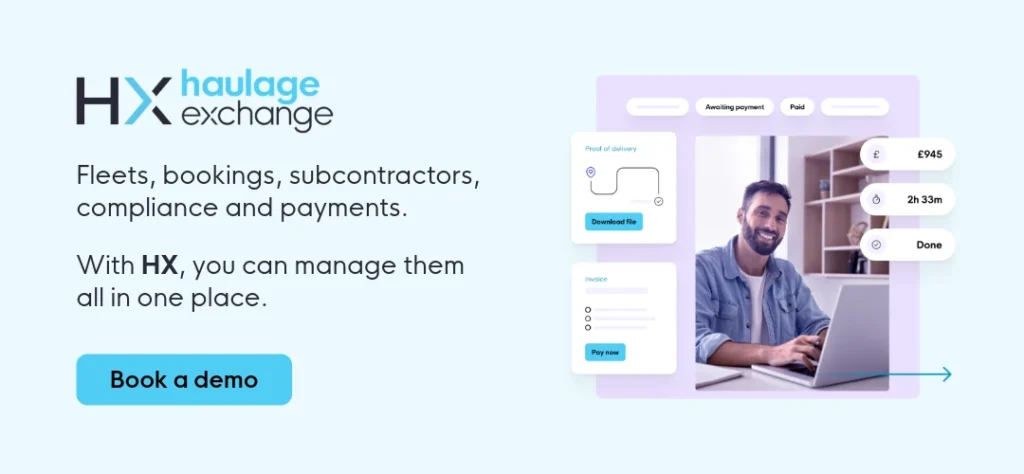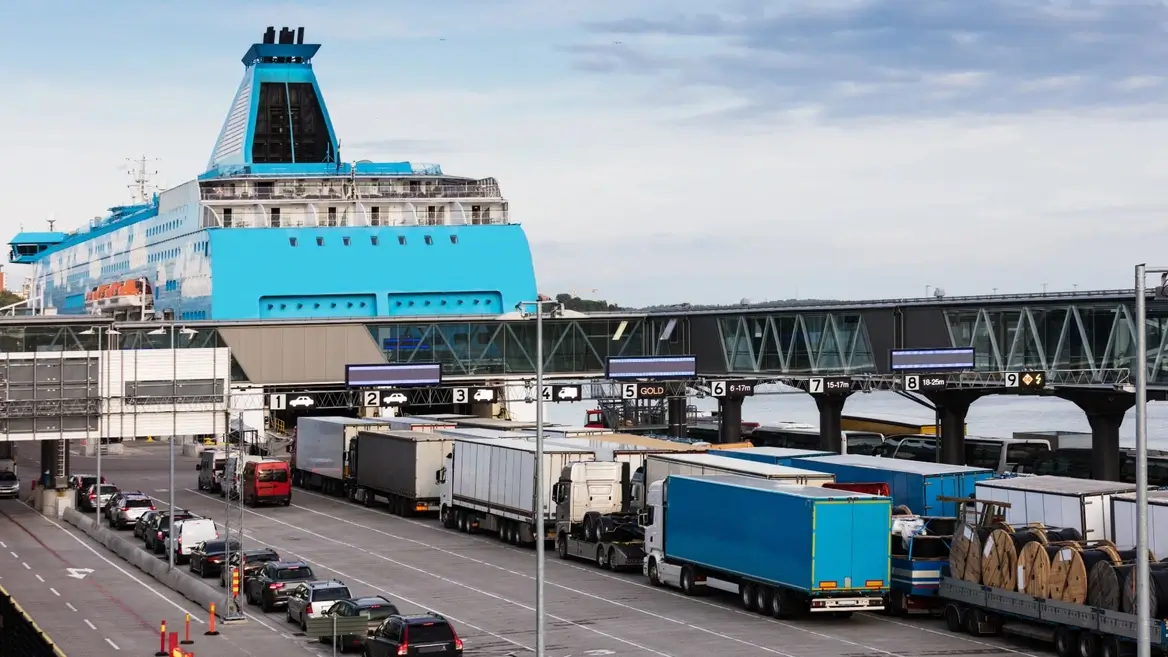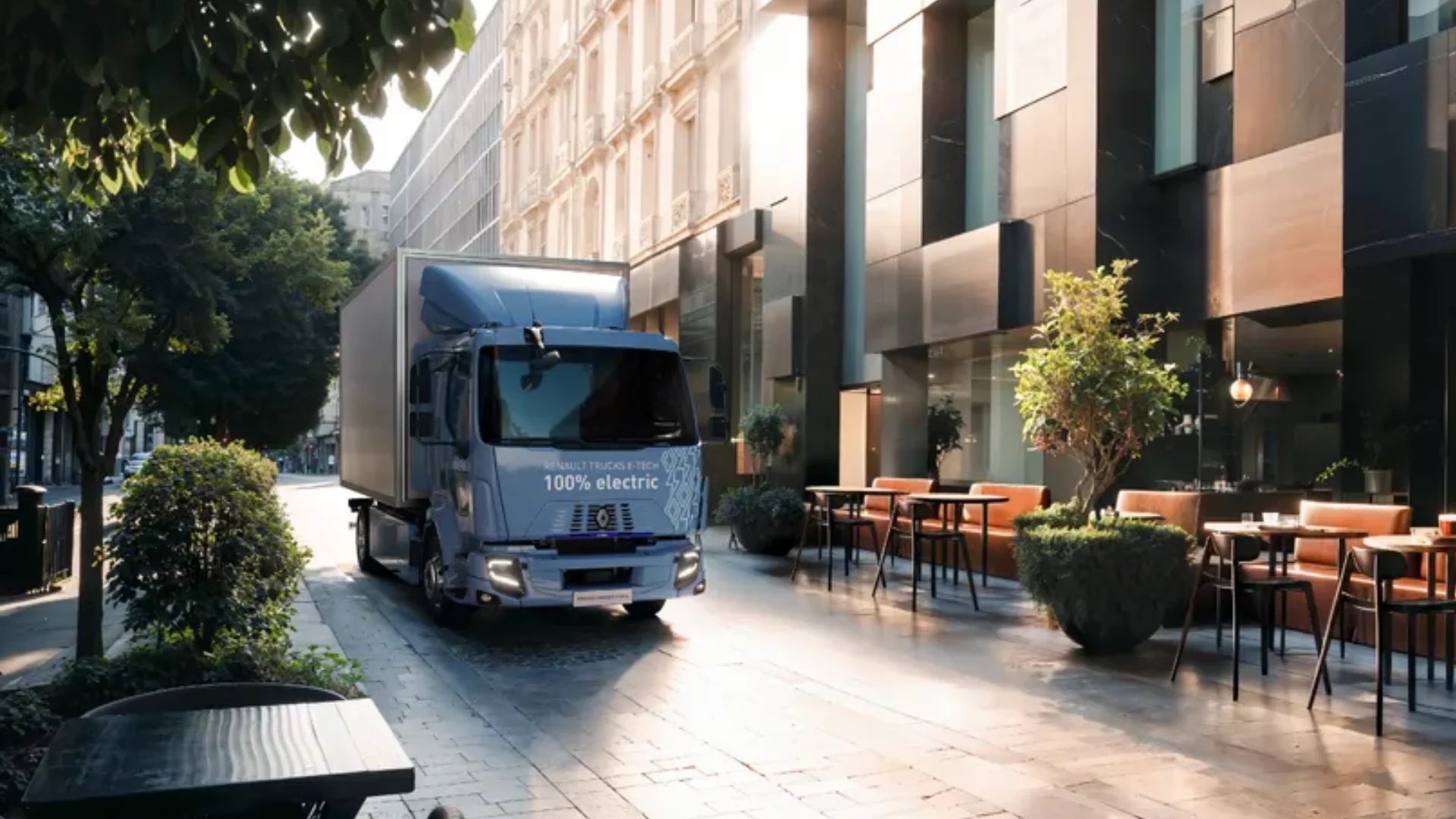The UK’s new Electronic Travel Authorisation (ETA) system is set to transform how travellers and workers enter the country. For haulage companies, especially those employing EU and non-EU drivers, this change brings both challenges and opportunities.
While the system aims to improve border security and simplify entry for visitors, it’s essential to understand its implications for the haulage industry. International drivers, who play a vital role in keeping goods moving to and from the UK, are directly affected by this new requirement.
What is the UK ETA?
The ETA is a digital pre-travel authorisation linked to a traveller’s passport. It enables individuals to visit the UK for short stays without needing a visa. This includes haulage vehicle drivers, courier drivers and other workers travelling for business.
It’s valid for two years or until the passport expires, whichever comes first. It allows multiple visits during its validity and costs £10. The application process is straightforward and can be completed via the UK government’s website or the UK ETA app.
Applicants need to provide passport details, contact information, and answers to a set of security questions. Most applications are processed within hours, making it a quick and efficient way to gain entry authorisation.
Who needs an ETA?
The ETA applies to non-visa nationals who don’t require a visa for short visits. This includes tourists, business travellers, and hauliers entering the UK via plane, ferry or the Eurotunnel.
British and Irish citizens are exempt, but EU nationals will need an one from 2nd April 2025. EU nationals can start applying for the ETA from 5th March 2025, giving European drivers a short window to adapt.
Drivers from non-EU countries who don’t need a visa for the UK already require an ETA as of this year. This mirrors similar systems in other countries, such as the European Travel Information and Authorisation System (ETIAS) set to launch in mid-2025.
According to the GOV.UK guidance, you won’t need an authorisation if:
- You have a visa
- You have permission to live, work or study in the UK (including settled or pre-settled status or right of abode)
- You are a British or Irish citizen
- You are travelling with a British overseas territories citizen passport
- you live in Ireland and you are travelling from Ireland, Guernsey, Jersey or the Isle of Man to the UK.
How will the ETA affect haulage companies?
The ETA means an additional layer of planning for haulage companies that do international loads. Drivers from EU countries and beyond will need to apply for authorisation before arriving in the UK, and non-compliance could lead to delays, penalties, or denied entry at the border.
For haulage companies hiring EU or non-EU drivers, this means:
- Increased administrative planning: Companies will need to confirm that drivers have valid ETAs before they travel.
- Potential delays: Missing or incomplete authorisations could disrupt deliveries, affecting haulage customer relationships.
- Cross-border preparation: UK drivers entering the EU will face similar requirements under the ETIAS system, creating a two-way compliance need.
With many haulage companies already facing driver shortages and complex logistics, this additional requirement underscores the importance of staying organised and informed.

The importance of compliance
Failure to comply with the new requirements could disrupt operations and tarnish your company’s reputation. Drivers turned away at the border may leave clients waiting for critical deliveries, impacting your ability to meet haulage customer service expectations.
Haulage companies should treat it as part of their broader compliance framework, similar to adhering to ADR haulage regulations or ensuring vehicles meet ULEZ-compliant haulier standards.
By planning ahead and supporting drivers through the application process, transport managers can maintain smooth operations and avoid unnecessary setbacks.
Steps to prepare your drivers for the ETA
To minimise disruptions, haulage companies can take the following steps:
- Educate your drivers
Make sure all international drivers understand the Electronic Travel Authorisation requirements, how to apply, and the penalties for non-compliance. Include this information during onboarding or in regular training sessions. - Incorporate ETA checks into trip planning
Add ETA confirmation as part of your trip preparation process. Check that all drivers travelling to the UK have valid ETAs well before their departure date. - Monitor renewal dates
Since an ETA lasts for two years or until the associated passport expires, create a system to track when drivers need to renew. - Keep up with cross-border requirements
As the ETIAS system and Entry/Exit system launches for EU countries, ensure your UK-based drivers are also prepared to meet the new requirements when delivering abroad.
The bigger picture: aligning with broader industry changes
While the new requirements might feel like another hurdle for the haulage industry, it’s part of a global trend toward stricter border controls and digital authorisation systems.
By adapting to these changes early, haulage companies can position themselves as reliable partners in an increasingly regulated world. The regulation’s emphasis on security and efficiency aligns with broader industry goals, such as reducing HGV carbon emissions and improving haulage solutions.
Moreover, adopting technology and processes to handle ETAs effectively can complement your efforts in managing haulage drivers and improving overall fleet efficiency.
Conclusion
The introduction of the Electronic Travel Authorisation marks a significant shift for haulage companies working internationally. While the new rules add complexity, they also highlight the importance of planning, compliance, and adapting to changing regulations.
By understanding the requirements and supporting your drivers, you can maintain smooth operations and continue to provide reliable service. Whether you’re starting a haulage company or managing a large international fleet, being prepared for the new rules ensures your business stays ahead of potential challenges.




